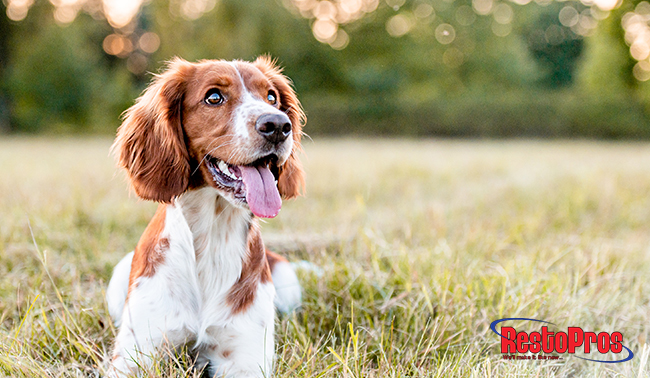10 Warning Signs and Symptoms Of Mold Poisoning In Dogs
You’ve most likely heard about humans suffering from mold-related illnesses. But have you heard about how mold can affect our four-legged friends? Because dogs can’t talk and tell us how they really feel, it can be hard to know when they’re suffering from something. However, they usually show symptoms that they’re not feeling like themselves.
There are three common ways that dogs can get mold poisoning, including:
- Inhaling Mold: Being present in places where there’s mold and/or sniffing moldy places
- Ingesting Mold: Eating moldy foods, such as compost piles or old garbage, can cause mold poisoning.
- Mold Allergy: Inhaling mold, ingesting mold, or living in a house where there’s excessive amounts of mold can cause allergic reactions in dogs.
Here are the top 10 warning signs and symptoms of mold poisoning in dogs:
-
Respiratory Distress
If your fur baby is breathing heavy and rapidly and appears to be in a great deal of distress, it’s possible they’ve inhaled mold. It’s important to take your dog to the veterinarian at this point, to make sure the symptoms don’t persist or worsen.
-
Nasal Discharge
Nasal discharge in pets often occur when something has irritated the nasal passages. When a dog inhales mold, it can cause their nose to be excessively runny.
-
Coughing, Wheezing or Sneezing
When common allergens, such as mold, enter your pet’s airways, it can trigger an allergic reaction that can cause the airway to swell. If your dog has inhaled an unhealthy amount of mold spores, they may start coughing, wheezing and/or sneezing.
-
Lethargy
Dogs that appear lethargic would cause any pet owner to worry. A lethargic dog is usually uninterested in playing, going for a walk, or doing any of those activities they’d normally enjoy. You should consider calling your vet if you notice your dog is lethargic after mold exposure.
-
Bloody Nose or Mouth
Blood is never a good sign – whether it be from your dog’s nose or mouth. If your dog has a bloody nose, there is a chance that they’ll swallow a great deal of it – making their stool black. While concerning, black stool doesn’t always indicate an issue in the gastrointestinal tract. Regardless, however, you should call a vet if you notice signs of blood anywhere.
-
Changes In Appetite
If your dog is showing signs of decreased appetite, it’s possible they’ve ingested mold – either from the garbage, a compost pile, or somewhere else.
-
Vomiting
Sometimes, dogs vomit because their stomach is upset. While it’s not always an indication that your pet has ingested mold, it’s definitely one of the symptoms. If vomiting continues, consult your local vet.
-
Excessive Scratching, Licking, and Chewing
Your dog may have a mold allergy, which was likely caused by living in a moldy house, inhaling, or eating mold. If they’re excessively scratching, licking or chewing, get them checked for a potential mold allergy. This can also result in extremely dry and scaly skin, as well as fur loss.
-
Stool Changes
If you’re noticing some obvious changes in your dog’s stool, it could mean something is amiss with your fur baby’s stomach. Stool changes can also include blood, which is concerning for any pet owner to come across. It never hurts to get that checked out by a professional vet.
- Seizures
In extreme cases, mold poisoning can also cause seizures and tremors in dogs. Long-term exposure to black mold can cause long-term neurological problems in dogs – and humans.
The best way to ensure your dog doesn’t suffer from mold poisoning is to make sure you take precautionary measures, such as:
- Keep pet food in sealed containers and put them in a cold, dry place.
- Wash food and water bowls consistently
- Wash pet toys
- Don’t leave old compost piles or garbage in easy-to-reach places
- Wash your dog’s bedding
- Clean cages and other accessories regularly
- Keep your dog out of moldy environments, such as crawl spaces, basements, swamps, etc.
- Keep the indoor humidity levels between 30-50%
- Get rid of household mold as soon as you can
- Have a professional inspect for mold
Need Mold Remediation or Mold Testing Services In Dallas, Fort Worth, TX? Contact RestoPros Today!
Whether you need professional mold remediation or you need professional mold testing, RestoPros is here for all your mold removal needs! Contact us today by calling 855-587-3786 or fill out our online form here for a team member to be in touch soon.

